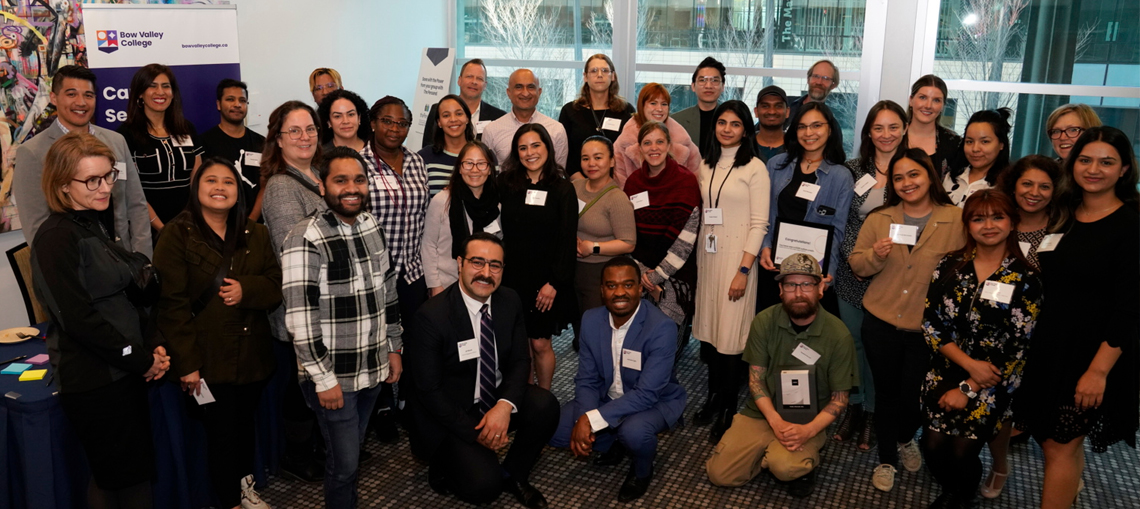)
Earth Day 2023
The first Earth Day took place more than fifty years ago in 1970. At the time, air and water pollution were major concerns: the use of lead in fuels was common, and the existence of substances that were harming the ozone layer was becoming more well known. Rachel Carson’s bestseller Silent Spring (published in 1962) raised awareness about the toxicity of chemicals in our food system, making connections between the natural environment and human health.
The focus of Earth Day has changed a lot over the past fifty years. Some environmental challenges, like ozone layer depletion, have been addressed through international cooperation, while some new challenges such as microplastics have emerged. Still other challenges like climate change have been stubbornly difficult to solve. The field of sustainability is continually evolving, so we wanted to take a moment and reflect on how sustainability at Bow Valley College has evolved as well.
A coordinated approach to sustainability began in 2009 when College president and CEO Sharon Carry signed the Pan-Canadian Protocol for Sustainability by the Association of Canadian Community Colleges and the University and College Presidents’ Climate Change Statement of Action for Canada. As a result, a voluntary committee of staff called the Green Team came together to raise awareness of sustainability, plan events, and share resources across departments.
Then in 2016, the City of Calgary announced incoming recycling and composting bylaws for institutions and businesses. To assist the Green Team with responding to the bylaws, a half-time contract sustainability coordinator was hired. The coordinator worked with the Green Team to remove individual garbage cans from every single classroom and office across the downtown campus and replace them with four-stream waste stations in all the hallways. In one year, the College went from recycling more than 14 per cent of waste to diverting more than 75 per cent of waste from landfills. This number has continued to climb, as specialized recycling programs for electronics, gloves, batteries, pens, and fabric have been added.
Once we had our waste management program running, we decided to look upstream and try to prevent waste. By this time, the sustainability coordinator position had transitioned to a continuous position with more hours and the Green Team committee included student members. In 2018, the College joined the Sustainable Purchasing Leadership Council and began examining all our purchases – large and small – through a lens of sustainability.
We quickly realized that our role as a purchaser provides us with an opportunity to respond to one of the most pressing issues of our time: climate change. The College purchases natural gas to heat our North Campus and West Campus buildings, and purchases district heat for South Campus. We also purchase electricity for all three buildings. We have an opportunity to reduce the greenhouse gas emissions associated with these purchases. Our Campus Services team is working hard to make that a reality, and we are excited to share our progress along the way.
Climate change is an extremely complex problem that requires collaboration across our internal departments, external partners, community members, and of course – engagement with our students and employees. In 2020, the College joined Colleges and Institutes Canada’s ImpAct Climate initiative, which allows us to collaborate with institutions from across the country.
This is just a snapshot of the College’s evolutionary story of sustainability. There have been countless projects, events, and learnings along the way that we weren’t able to highlight here. We are honest that we have had some setbacks along with our progress, but every day we work to increase our positive environmental and social impact.
Happy Earth Day! We encourage you to take some time to celebrate this beautiful, finite planet.
Questions or comments? Please contact sustainability@bowvalleycollege.ca.




